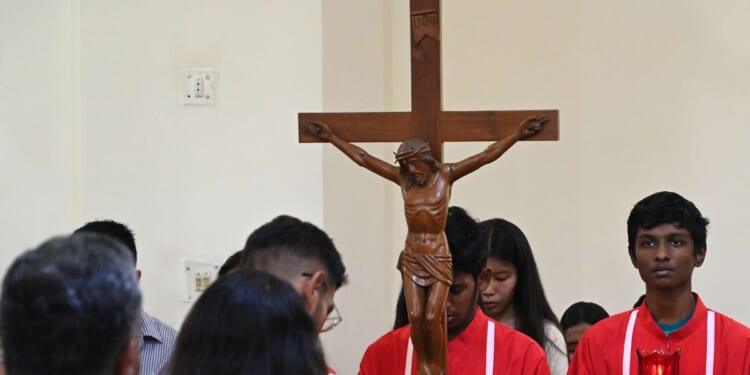CHRISTIANS across India face rising levels of violence, social hostility, and legal scrutiny, advocacy groups report. Attacks on Christians have become near-daily this year. These affect families, pastors, and small congregations across several states.
The Evangelical Fellowship of India’s Religious Liberty Commission (EFIRLC) recorded 334 verified cases of violence, harassment, and discrimination between January and July 2025.
The United Christian Forum (UCF), which operates a national helpline, reported 579 cases by September. These included physical assaults during worship, vandalism of churches, and arrests under state-level “Freedom of Religion” Acts that regulate religious conversions.
In states such as Uttar Pradesh and Chhattisgarh, both governed by the Bharatiya Janata Party (BJP), such laws have become central to the issue. While presented as measures against forced conversions, they are, activists say, used to target ordinary Christians and pastors.
Accusations alone are often enough to occasion arrests or mob violence.
In Bastar, Chhattisgarh, Pastor Samuel Masih described an attack in July when more than 60 people entered his home after a Sunday service. “They pulled people outside and accused us of converting villagers,” he said. Six pastors were later detained under conversion charges. “We spent days in custody before being released. There was no evidence against us.”
Converts from Dalit and tribal backgrounds reportedly face the harshest treatment. Sunita Toppo, a resident of northern Chhattisgarh, said that her family was evicted from their village after they adopted Christianity. “We were denied water and daily work,” she said. “Our children were told not to come to school.”
Reports from UCF and the Evangelical Fellowship of India’s Religious Liberty Commission describe a pattern in which community pressure forces many converts into ghar wapsi, or re-conversion to Hinduism. Public ceremonies are sometimes held, while those refusing face social exclusion or violence.
The fear has spread to Bihar, Madhya Pradesh, and Odisha, where pastors report constant monitoring by local groups. Small prayer meetings or charity events can lead to police questioning. “We keep services short and avoid singing loudly,” a pastor from eastern Uttar Pradesh said. “Anything can be misinterpreted.”
Community leaders say that they are discouraged from running education projects traditionally overseen by churches, especially in rural areas. “We used to organise health camps and literacy drives,” a worker with a Christian charity in Jharkhand said. “Now, every activity is viewed with suspicion.”
In Manipur, two years after ethnic clashes between the Meitei and Kuki communities left more than 250 dead and 60,000 displaced, Christians continue to live amid deep divisions. Hundreds of churches destroyed in 2023 remain unrepaired. Pastors say that worship has shifted to private homes, and many families have yet to return to their villages.
Despite limited resources, Christian networks continue to provide legal aid and document abuses.
The UCF helpline receives dozens of distress calls weekly, its coordinators report. “We guide victims on how to file police complaints and arrange legal representation,” said one based in Delhi. “Many fear going to the police directly.”
The US Commission on International Religious Freedom (USCIRF) this year again designated India as a “Country of Particular Concern”, citing systematic violations of religious freedom. The Indian government rejected the report, calling it inaccurate.
For those on the ground, the debate offers little relief. A pastor in Uttar Pradesh said his congregation now met in secret. “We lock the doors and pray quietly,” he said. “People are scared, but still come. It is their only moment of peace.”
















